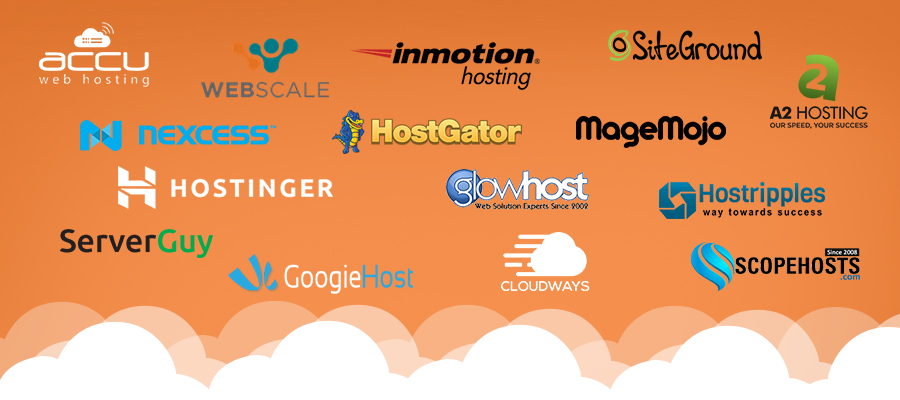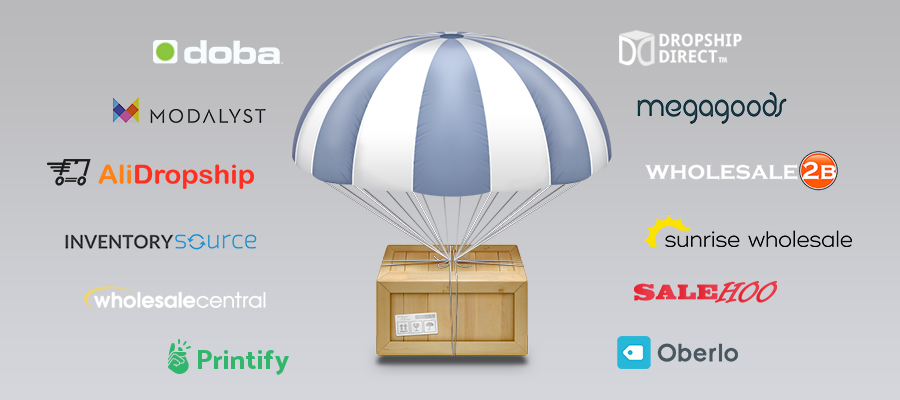Within the last decade, Magento has become one of the most popular eCommerce systems used by online merchants. Regardless of the product they want to offer on sale or the eCommerce business model they’re implementing, Magento always has an answer.

In this article, we’ll review
☛ What to look out for when choosing a Magento Hosting Provider
☛ Recommended Magento Hosting Providers
☛ Magento’s top features
It is not a wrong idea to ask a potential Magento hosting provider if they use a server-side virus scanner and also what forms of DDoS or firewall systems are available on their service.
Since PHP modules are susceptible to attack, you may also want to find out whether the hosting provider offers an application for turning the modules on and off any time you want.
Since the internet is always online and customers can come around at any time, it is vital to match their consistency by choosing the right hosting provider.
While it is true that nearly all Magento hosting providers will attach a “99.99% uptime” tag to their package, the reality is that some of them cannot guarantee it in the long run.
For instance, newer versions of Magento recommends PHP 7.0 or higher, and although most providers have implemented the necessary upgrades, some may still lack the compatible features to support the deployment.
Find out from them whether all their current features are compatible with Magento’s.
The reality is that online buyers are impatient and don’t have all the time in the world to wait for your overloaded system to show them the items they’re searching.
Once you determine the size of your eCommerce store, choose a hosting plan that guarantees the maximum speed and verify with the provider that there will be no numerous cases of server overload.
When that happens, you should have a trusted channel to get in touch with the hosting provider even if its a holiday!
Not offering a 24/7 support can be a red flag that a particular Magento hosting provider is not the best option for you.
There are still some other things you have to spend on before your store can go live. Therefore, hosting should not dig a hole in your pocket!
If you can’t find this page on their website, then you can do a Google search containing the company’s name.
For instance: (Magento Hosting Company name) + negative reviews
Since you already expect a top hosting company to offer at least an average service, searching for negative reviews can help you to find out what loopholes exist easily.
Recommended Magento Hosting Providers
Aside from hiring an expert Magento eCommerce developer to work on your new online store, successful merchants will tell you that the next thing that decides the success of your business is the Magento hosting provider that you choose.
For More Info Click Here

In this article, we’ll review
☛ What to look out for when choosing a Magento Hosting Provider
☛ Recommended Magento Hosting Providers
☛ Magento’s top features
1. What To Look Out For When Choosing A Magento Hosting Provider
Security
Hackers are real, and you should be wary of doing what you can to keep your store safe. However, your hosting provider is responsible for ensuring server security every time.It is not a wrong idea to ask a potential Magento hosting provider if they use a server-side virus scanner and also what forms of DDoS or firewall systems are available on their service.
Since PHP modules are susceptible to attack, you may also want to find out whether the hosting provider offers an application for turning the modules on and off any time you want.
Up-Time
For one thing, you never want your Magento eCommerce store to go offline now and then because of hosting related issues.Since the internet is always online and customers can come around at any time, it is vital to match their consistency by choosing the right hosting provider.
While it is true that nearly all Magento hosting providers will attach a “99.99% uptime” tag to their package, the reality is that some of them cannot guarantee it in the long run.
Compatibility
It is also vital to ensure that Magento’s hosting requirements are in line with what is offered by the provider.For instance, newer versions of Magento recommends PHP 7.0 or higher, and although most providers have implemented the necessary upgrades, some may still lack the compatible features to support the deployment.
Find out from them whether all their current features are compatible with Magento’s.
Speed
How long do you expect a web page to load, especially when you’re in the middle of shopping?The reality is that online buyers are impatient and don’t have all the time in the world to wait for your overloaded system to show them the items they’re searching.
Once you determine the size of your eCommerce store, choose a hosting plan that guarantees the maximum speed and verify with the provider that there will be no numerous cases of server overload.
Technical Support
Let’s face it. No matter how hard you try always to keep your eCommerce store online, downtime issues related to hosting providers are almost inevitable.When that happens, you should have a trusted channel to get in touch with the hosting provider even if its a holiday!
Not offering a 24/7 support can be a red flag that a particular Magento hosting provider is not the best option for you.
Pricing
Since there are many recommended Magento hosting providers, it is never a wrong idea to compare pricing and choose which one suits your budget.There are still some other things you have to spend on before your store can go live. Therefore, hosting should not dig a hole in your pocket!
Customer Reviews
Conclusively, the best Magento Hosting providers include a review page on their website to allow satisfied and unsatisfied customers share their thoughts about the service.If you can’t find this page on their website, then you can do a Google search containing the company’s name.
For instance: (Magento Hosting Company name) + negative reviews
Since you already expect a top hosting company to offer at least an average service, searching for negative reviews can help you to find out what loopholes exist easily.
Recommended Magento Hosting Providers
Aside from hiring an expert Magento eCommerce developer to work on your new online store, successful merchants will tell you that the next thing that decides the success of your business is the Magento hosting provider that you choose.
For More Info Click Here



